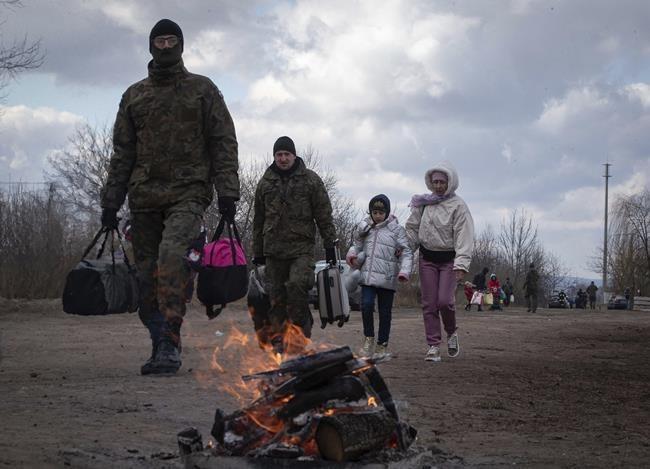TORONTO — The war in Ukraine is forcing investors, especially those who prioritize environmental, social and governance (ESG) factors, to take a closer look at the stocks and other assets they hold, whether individually or through funds.
"I hope we see more investors connecting the dots on value and values," said Christie Stephenson, executive director of the Peter P. Dhillon Centre for Business Ethics at the UBC Sauder School of Business, in an interview.
Over the last few weeks, asset managers and pension funds both in Canada and elsewhere have pledged to divest their Russian holdings because of the humanitarian crisis happening in Ukraine.
"This crisis is an ESG investing case study happening in real time," Stephenson said.
It also demonstrates that money managers need to pay more attention to issues around injustice and the social and political climate of different regions when deciding on what assets to hold, she added.
Portfolio managers are now fielding questions from average investors about their direct and indirect exposure to Russia and about which sectors might be better choices at this time, adding new scrutiny to existing ESG standards.
In an interview, Ryan Bushell, president and portfolio manager at Newhaven Asset Management, said he expects to see natural gas infrastructure providers viewed much more positively.
Conversely, technology names, which have previously been ESG favourites, are likely to be evaluated further given the destruction of capital that has occurred as of late, he explained.
"There are people even asking if weapons providers are now ESG," he said.
Vlad Tasevski, chief operating officer and head of product at Purpose Investments Inc., which has divested all direct holdings of Russian companies, also sees the ESG narrative changing in the energy sector in light of the crisis in Ukraine, especially with the U.S. shutting the door on Russian oil and gas imports and banning new U.S. investment in Russia’s energy sector.
Prior to the war, there was a push for a quick and abrupt shift to sustainable energy sources – part of the environmental component of the ESG equation. As the global energy supply and security dynamic changes, however, due to the geopolitical unrest, Tasevski expects ESG-minded investors and money managers to be more realistic in the short term when it comes to energy companies meeting their environmental goals, as producers – in particular, those in Canada and the U.S. – try to keep up with the evolving landscape.
"What that means is a balanced transition away from the current processes of generating energy,” he said in an interview. “There will be a friendlier approach to ESG."
For those concerned about what's in their portfolios, Newhaven Asset Management’s Bushell says investors , especially when their money is managed for them, should make the effort to understand the companies they are invested in and want to invest in.
"There is no substitute for actually understanding your investments and the price you are paying for them," he said.
This report by The Canadian Press was first published March 11, 2022.
Adena Ali, The Canadian Press



